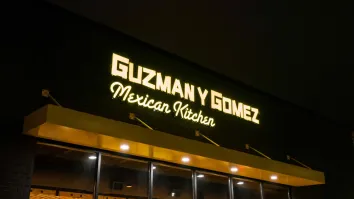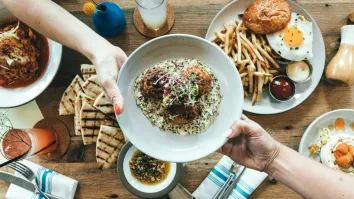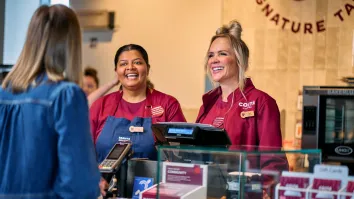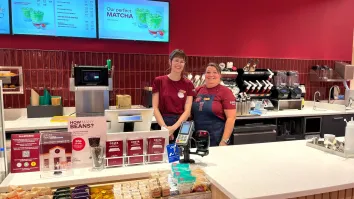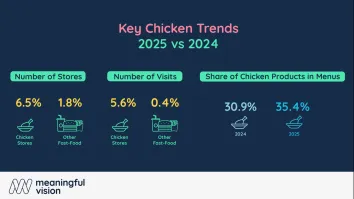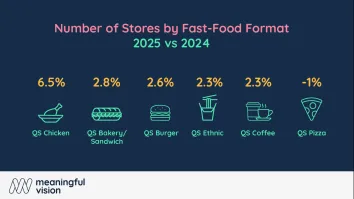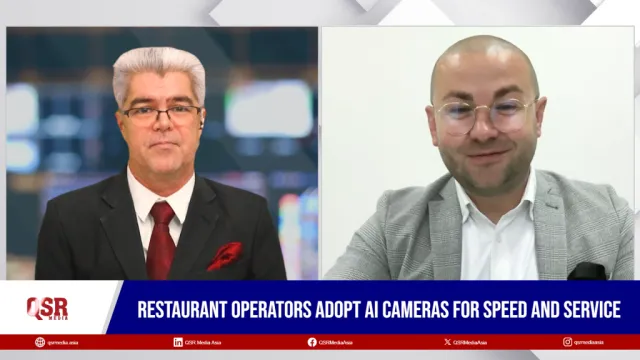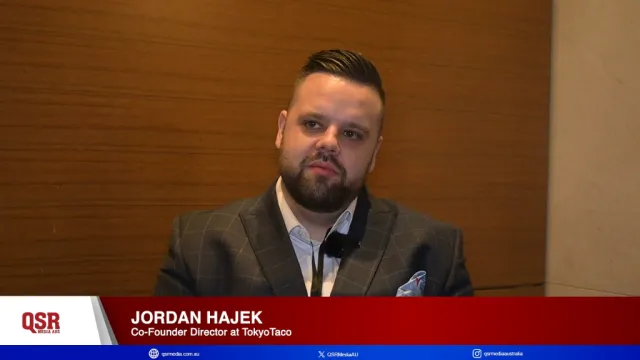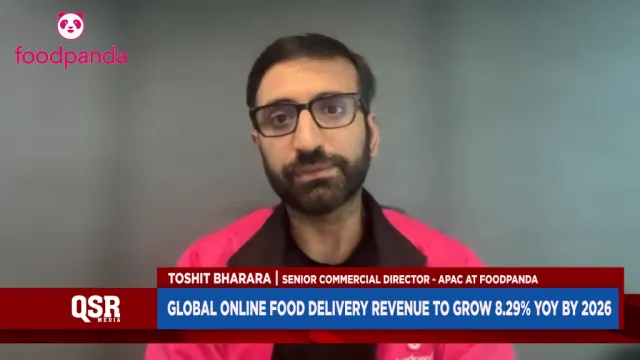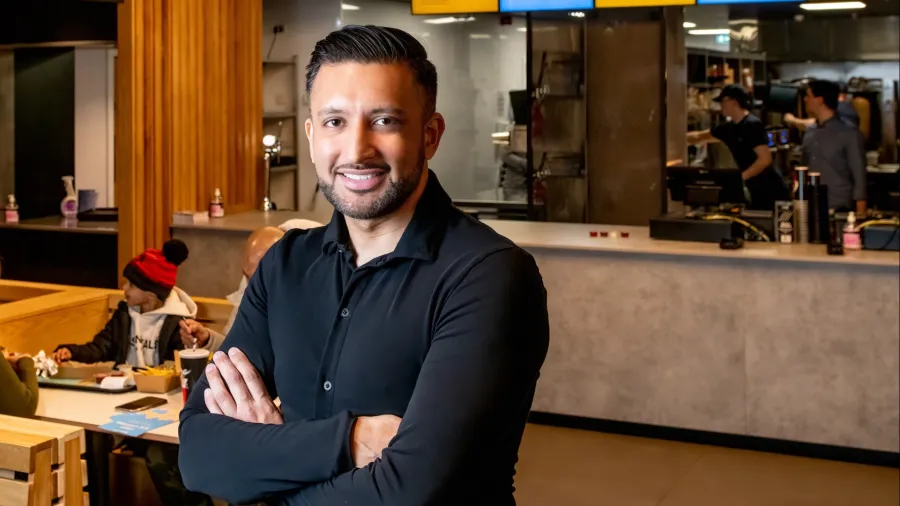
Doner Shack's timely rebranding tackles modern challenges
The rebranding resulted in a 32% uptick in UK June sales.
As consumer preferences change, brands must adapt. Whilst some add new menu items or tech, Doner Shack chose a complete business overhaul.
“Doner Shack feels like a completely different brand. It's almost unrecognisable to where it started, and I think the only key product that really has made it all the way through is our core kebabs,” Sanjeev Sanghera, co-founder and managing director of Döner Shack told QSR Media.
It was late last year when Doner Shack first announced the rebranding.
With the help of interior design service, Studio Jim, Doner Shack’s new look now incorporates red, black, and white as its primary colours. It also has a new logo featuring a solid white colour with red outlines.
The design of the interiors took inspiration from streetwear and pop-up retail stores to create a vibrant and dynamic atmosphere for their new target audience.
In line with the visual overhaul, Doner Shack also updated its menu. New offerings like chicken tenders, sliders, loaded fries, and new sauces now complement their core product.
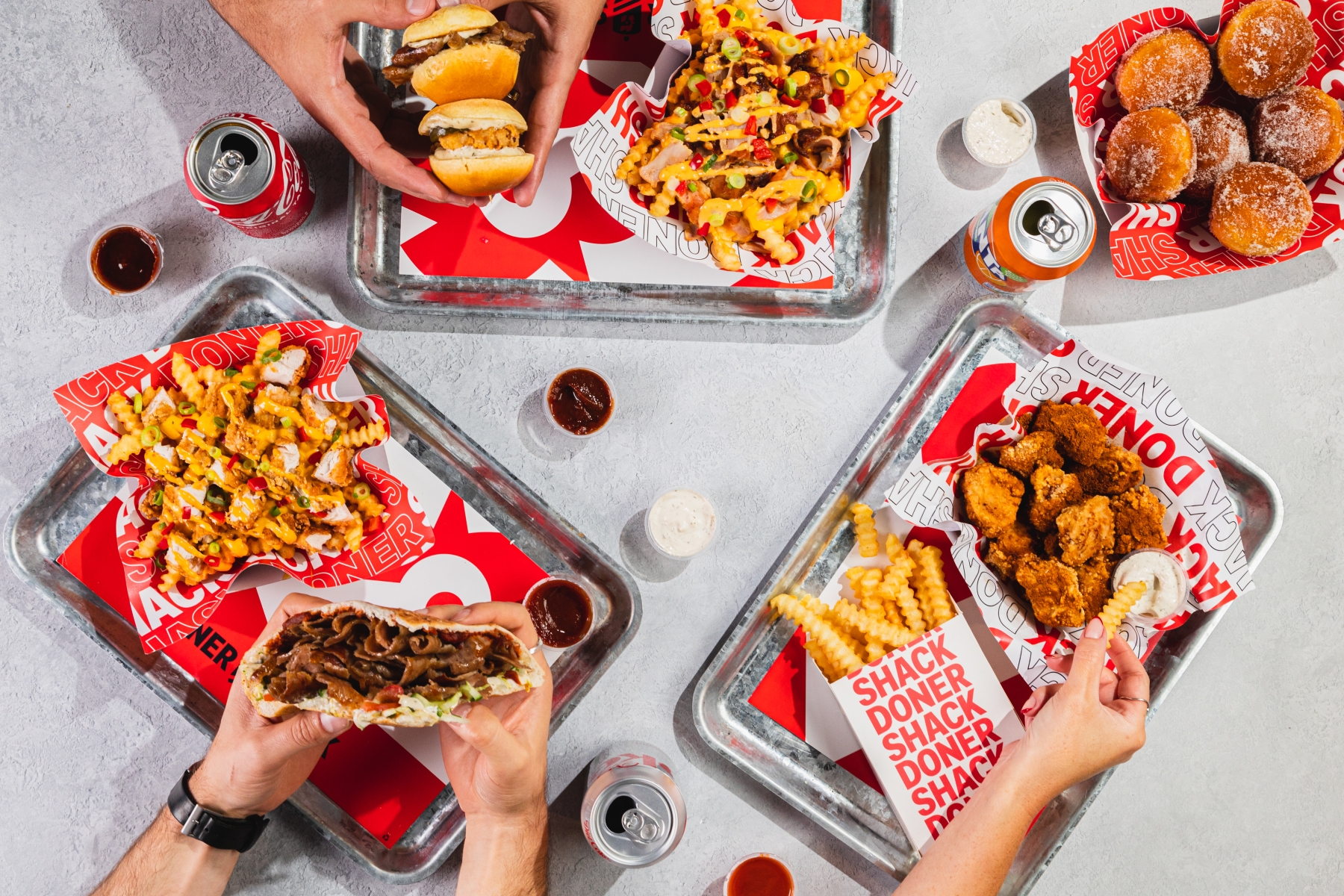
“The menu refresh was driven by several reasons. Primarily, we wanted to give our customers more reasons to visit Doner Shack more frequently than once every three or four weeks, which our research indicated is the current average for how often people are eating a kebab. So, adding the chicken, the loaded fries, the sliders, making our milkshakes even better and widening the recipes just made the brand more attractive to use more regularly,” Sanjeev explained.
This strategic menu update was also crucial in addressing inflationary pressures. Sanjeev noted, “Without making changes to the brand, our costs would have increased unfavourably. Therefore, reengineering the menu was essential to manage costs and ensure the long-term viability of the business.”
More focus on Gen Zs
Recognising their key demographic, Doner Shack revamped their design and imagery to appeal more to 18 to 34-year-olds.
This demographic shift was not just about aesthetics but also about understanding and meeting the preferences of younger consumers, who are looking for more than just good food; they seek an experience.
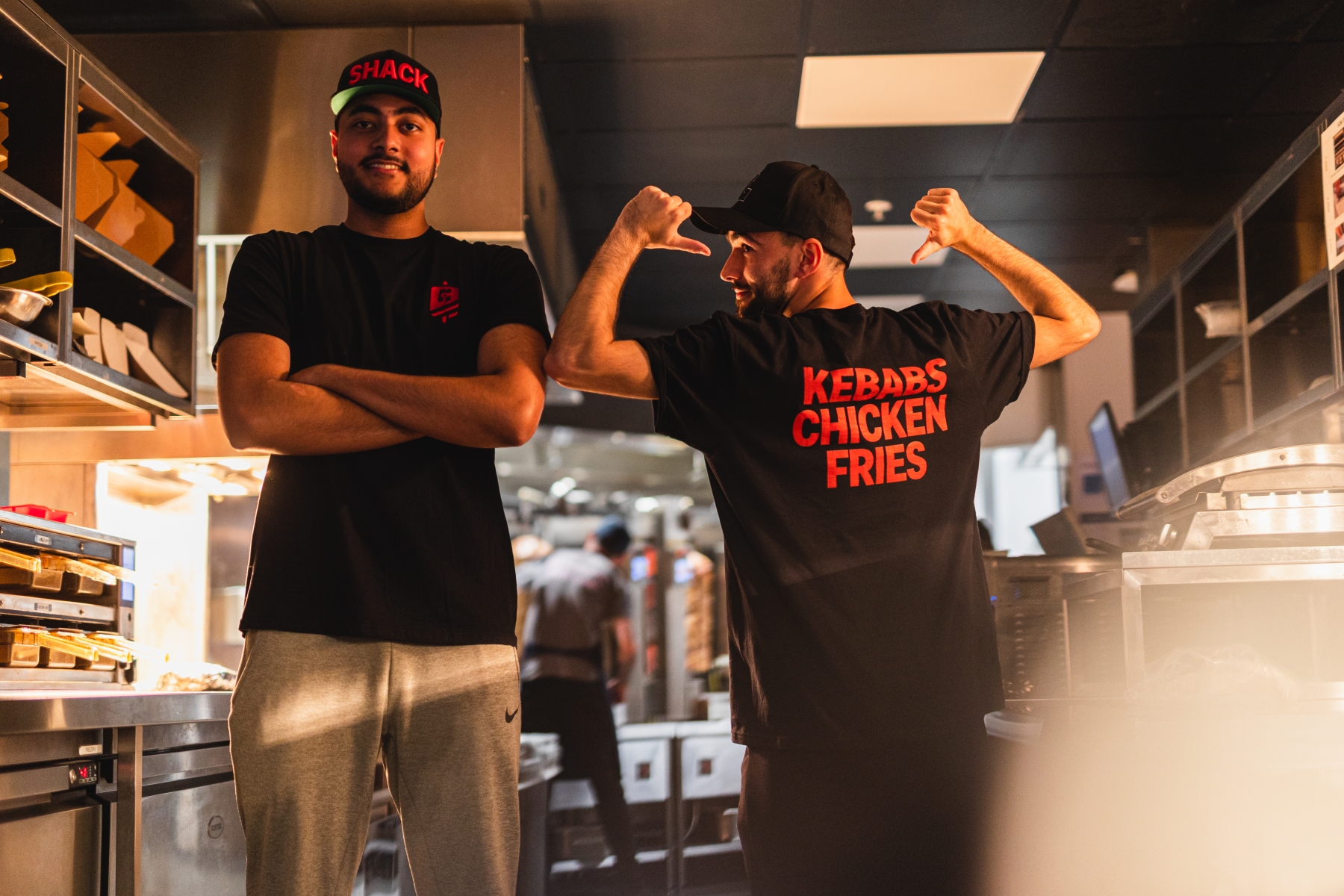
After a thorough review, they found that a lot of Doner Shack’s branding and point of provenance were missing the mark for its intended audiences.
This realisation led to a significant change in design and imagery, ensuring that the brand’s core demographic could relate to it. The result was a 32% sales increase in June compared to the previous year, with customers returning two to three times a week on average. Delivery sales rose by 60%, whilst in-restaurant dining increased by 11%.
Addressing modern challenges
The rebrand is more than realigning Doner Shack’s current trajectory. It also allowed them to address the modern challenges that many quick-service restaurants face today.
For example, Doner Shack started a curbside pickup when they noticed customers were parking outside and sending their partners in to collect the food. This small change significantly improved the customer experience by making the food pickup process more convenient and efficient.
Moreover, the brand aimed to reduce reliance on third-party delivery aggregators. Sanjeev explained that their new business model allows them to utilise their own riders and invest in software that helps track delivery to gather data on how long it takes for customers to get their orders.
“That way it relates better to the customer experience because customers are guaranteed that food is going to be in its best condition that it possibly can when they receive it. We want everyone to have a really good experience with our products, whether they eat at home, eat in the car, or they come into our restaurant, our primary objective is to make sure that the food is tasting as best as it possibly can,” Sanjeev said.
Labour challenges
One of the most significant challenges facing the quick-service restaurant industry is labour.
“Trying to find quality candidates, get them through the onboarding process, and have them start in the restaurant, especially while they’re being inundated with competing offers from other businesses… it’s challenging. We've certainly seen that across the UK in Manchester, Leeds, and Glasgow,” Sanjeev acknowledged.
To compete, Doner Shack focused on creating a positive working environment. This strategy involves not only fostering a good culture but also investing in kitchen technology that helps alleviate ‘laboursome’ tasks.
“My focus as a chef is to make the kitchen environment a positive space and somewhere where people love turning up to work every day. Similarly, my focus as a restaurant manager is to make front-of-house the same positive environment for the team,” Sanjeev said.
This approach has yielded impressive results. Doner Shack’s strategy resulted in high retention rates and low turnover, with 50% of staff remaining since their individual locations opened. This retention is a testament to fair pay, respectful treatment, and a rewarding, enjoyable work environment.
US market entry
With this new model, Doner Shack is currently eyeing a US-market entry, planning to showcase itself at the Franchise Expo South in Fort Lauderdale, Florida, on 6 and 7 September. Sanjeev said he doesn’t think there is a perfect time to enter a new market but believes that currently, Americans are exploring a variety of food options beyond burgers and pizza.
“They've been done in a multitude of different ways and people have seen just about everything they want to see within those food types. Many Americans are seeking new products and diverse food options, and we believe kebabs could easily become one of the top two or three in demand,” Sanjeev said.
For their growth plans in the US, Doner Shack plans to take their time and build relationships with suppliers. “Our immediate focus is on near-term plans. We know what our long-term plans are, but our near-term plan is to concentrate on our franchise partners who are ready to now start opening restaurants. We’re here to make sure that they get all the support they need to be able to create successful restaurants,” Sanjeev said.


